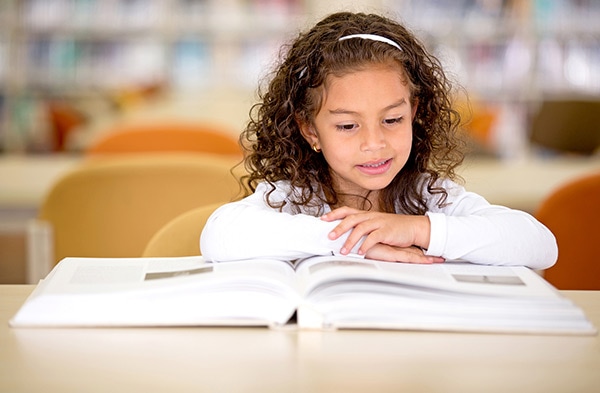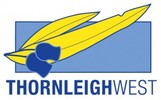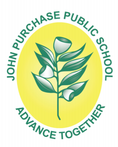|
Academic papers about best practice for teaching reading often refer to the strategy of allowing children to have free book choice. This is a response to the common practice of having ‘readers’ as the main or only source of reading material available to children, and classes not having access to or having time to read ‘real’ literature. Of course it is vital that real books by real authors be the centre of any teaching of reading in classes. But I want us to pause and think about the idea of ‘free’ choice; the implication being that children always choose books they want to read and are interested in.
There are two issues in this – What is choice and what is the role of the teacher in this idea of 'free choice'? Firstly the topic of choice. It is a misnomer to say that we are free to choose anything; no choice is made in a vacuum. All choices are made with-in a context, and there are many factors that create the context - our culture, gender, environment, social opportunities, economics etc. For children, it is very much dictated by factors such as family circumstances, peers, gender, cognitive ability and so forth. Book choice therefore is dictated by the context in which we live our lives. How many times have we seen children choose books that are thick with small print, they struggle to read them (or appear to read them) because they want to look smart in front of their peers, girls who choose horse books they’re not really interested in, but all the other girls in their class are. Then there is the issue of how children get access to books. Some families have Grandma choose and buy them, or they access books read by their own parents. What about the influence of publishers and booksellers to promote their latest publication? Kids feel obliged (although they wouldn’t recognise the pressure) to read the latest and coolest book because of how it is promoted, the fact that everyone else is reading it or how it is linked to the latest film. How many of us actually read these books first to know if they are suitable? Do we really want 10 year olds reading The Hunger Games where children hunt to kill others? Have you actually read Dork Diaries??? Do we follow the mantra that it doesn’t matter what they read as long as they are reading? There are many factors that influence the choice a child makes about what book they read, just because a teacher isn’t handing a book to a child and telling them they have to read it – doesn’t mean the choice is ‘free’. (By the way, this doesn’t apply to high schools as they still do nothing to encourage individual choice of books, they dictate what must be read and studied to within an inch of its life. And obviously this is what society wants if you look at the positive reaction to the new stage 6 syllabus where Shakespeare is a key text - Not sure when Shakespeare was not studied, I’m sure every generation has had to read at least one of his plays at school.) Secondly, it is important to look at the role of the teacher with free book choice. I would hate to think that teachers would think that free book choice meant that they stepped away and were not involved in the process of choosing books for children to read. As a teacher, I find the most motivating strategy to encourage children to read is to direct children to books that they should read. When I say direct I mean recommend, encourage, promote. How special for a child to have a teacher arrive at school with a book in hand saying; ‘I know you love funny stories, I have just found this book and when I read it I thought how much you would laugh at it – do you want to give it a try?’ Our role surely is to help direct kids to choose books that will engage them and help them grow as readers and as people. I look at a young teacher who has chosen to read to her Year 5 class The Secret Garden. A brave choice as it could so easily be viewed as a girls’ book (the assumption being that it has no value or interest for boys) or a book that is not relevant to kids’ experiences, or just an old boring book. However, she has managed to engage her entire class with it, they don’t want her to stop and they listen intently when she reads. If she had left kids to choose ‘freely’ or had gone with what is modern or popular, they would never have been exposed to such a lovely experience with literature; they wouldn’t have travelled in their minds to India and turn of the century Yorkshire England where life was so different to theirs. Good teaching is central to how children respond to books. That makes me think about what a teacher needs to do to teach reading well? They must be readers themselves to show passion (sure it can be faked!!) and they must know children’s books (harder to fake). To engage a child in reading you need to be able to talk to them about what they are reading, know what is out there and what choices are available, recommend books, show them that you know the stories they are reading. Share your thoughts – it’s ok not to like a book, makes you more real and your recommendations more honest. Teachers need to be involved in helping children have ‘free’ book choice, guide them, make suggestions and even push them out of their comfort zone. We don’t have to settle for children always choosing books titled ‘The day my bum went psycho’ followed by ‘Zombie Bums from Uranus’ because we think they will only read because of the rudeness, shock tactics and grossness - this does have a place - but it is not the only way to get children to read. Passion and excitement for books can be generated by a great teacher allowing children to become enveloped in worlds that can only be experienced through reading a range of great books. Is it fair to deny children this opportunity?
2 Comments
|
AuthorBarbara Reynolds Archives
March 2017
Categories |

 RSS Feed
RSS Feed



